Ojas Ahuja
Aspect-Oriented Summarization through Query-Focused Extraction
Oct 15, 2021

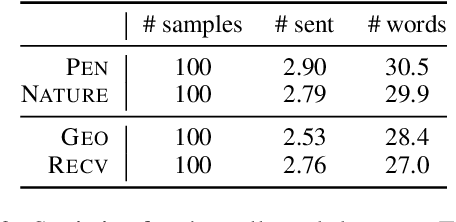
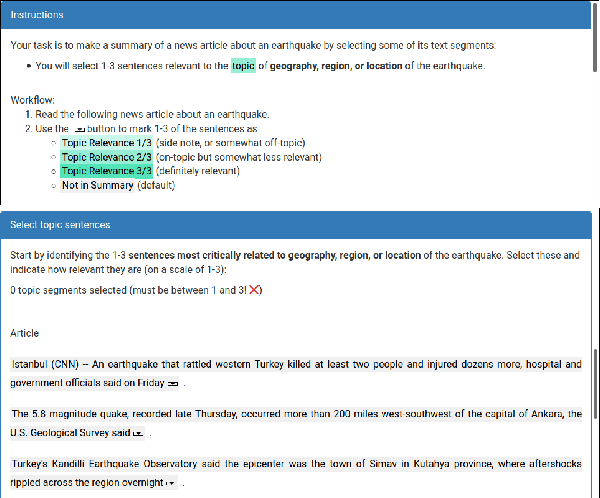
Abstract:A reader interested in a particular topic might be interested in summarizing documents on that subject with a particular focus, rather than simply seeing generic summaries produced by most summarization systems. While query-focused summarization has been explored in prior work, this is often approached from the standpoint of document-specific questions or on synthetic data. Real users' needs often fall more closely into aspects, broad topics in a dataset the user is interested in rather than specific queries. In this paper, we collect a dataset of realistic aspect-oriented test cases, AspectNews, which covers different subtopics about articles in news sub-domains. We then investigate how query-focused methods, for which we can construct synthetic data, can handle this aspect-oriented setting: we benchmark extractive query-focused training schemes, and propose a contrastive augmentation approach to train the model. We evaluate on two aspect-oriented datasets and find this approach yields (a) focused summaries, better than those from a generic summarization system, which go beyond simple keyword matching; (b) a system sensitive to the choice of keywords.
Accelerating Natural Language Understanding in Task-Oriented Dialog
Jun 05, 2020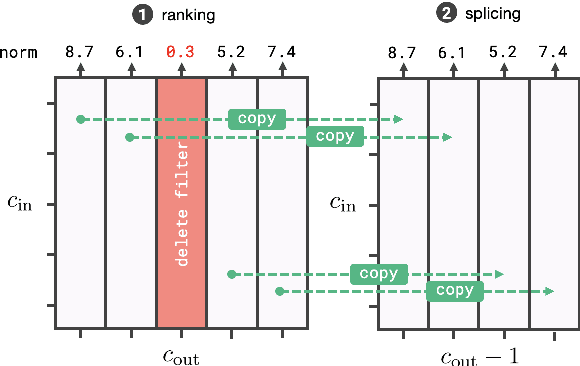
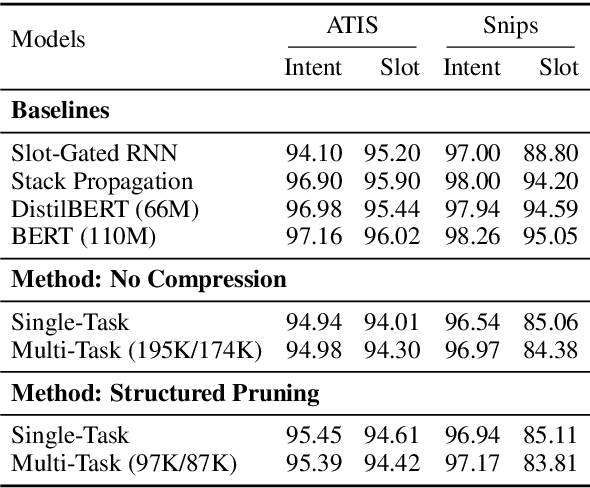
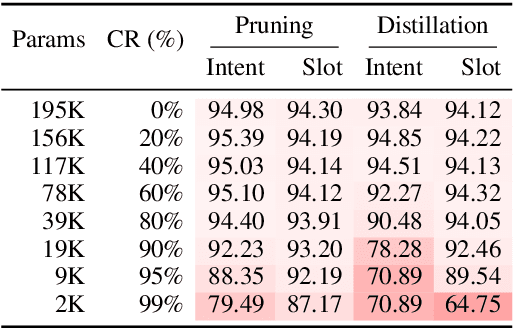
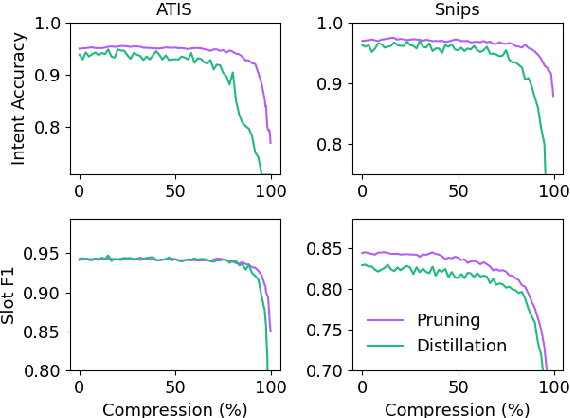
Abstract:Task-oriented dialog models typically leverage complex neural architectures and large-scale, pre-trained Transformers to achieve state-of-the-art performance on popular natural language understanding benchmarks. However, these models frequently have in excess of tens of millions of parameters, making them impossible to deploy on-device where resource-efficiency is a major concern. In this work, we show that a simple convolutional model compressed with structured pruning achieves largely comparable results to BERT on ATIS and Snips, with under 100K parameters. Moreover, we perform acceleration experiments on CPUs, where we observe our multi-task model predicts intents and slots nearly 63x faster than even DistilBERT.
 Add to Chrome
Add to Chrome Add to Firefox
Add to Firefox Add to Edge
Add to Edge